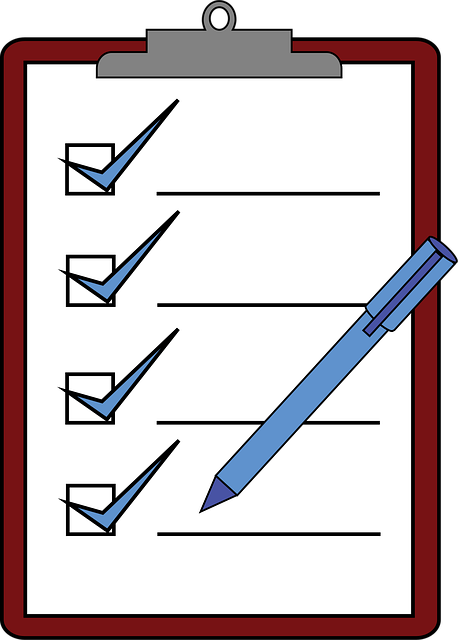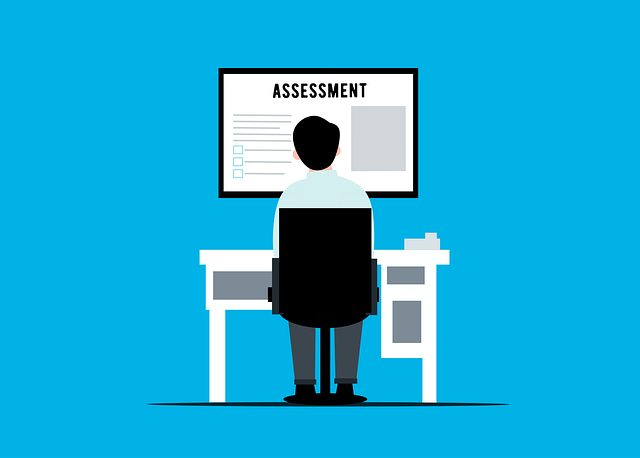Creating optimal study conditions enhances exam performance through focused environments, peer collaboration, and mind mapping. Time management strategies break down exams, allocating time based on weightings. Active learning, regular breaks, and strategic sleep improve retention. Mindfulness combats pre-exam stress and anxiety. Exercise and nutrition support cognitive functions for peak academic success.
Maintaining concentration during exams can be challenging, but with strategic approaches, you can significantly enhance your focus. This article guides you through essential techniques to overcome distractions and perform at your best. From creating an optimal study environment to implementing time management strategies, utilizing active learning, incorporating breaks, and adopting mindfulness practices, each section offers practical advice tailored to help you excel in exams.
- Create a Study Environment That Fosters Focus
- Implement Effective Time Management Techniques
- Utilize Active Learning Strategies During Review
- Incorporate Short Breaks to Refresh Your Mind
- Practice Mindfulness and Stress Reduction Techniques
- Stay Physically Active and Maintain a Healthy Diet
Create a Study Environment That Fosters Focus

Creating a dedicated and conducive study environment is a strategic step to enhancing your concentration during exams. The space you choose should be free from distractions, quiet, and organized. Consider personalizing your study area with elements that inspire focus, such as a clean desk, adequate lighting, and minimal clutter. Collaborative learning activities can also help create a productive atmosphere; studying with peers allows for knowledge sharing and provides an opportunity to clarify complex concepts.
Mind mapping is another effective technique to organize your thoughts and understand intricate topics. By visually representing connections between ideas, you can grasp information more efficiently. This method aids in identifying critical information and streamlining your study sessions. Prioritizing tasks for studying, as offered by our brand, involves breaking down content into manageable chunks. Give us a call to learn how we can assist in optimizing your study routine.
Implement Effective Time Management Techniques

During exams, time management is key to maintaining focus and preventing stress. Start by breaking down your exam into manageable sections, allocating specific amounts of time for each question based on its weighting. This ensures you don’t spend too much time on a single question while neglecting others. Use effective note-taking methods during preparation; organise your notes in a way that makes revisal quick and efficient. For instance, summarise key concepts using bullet points or mind maps, which can help visual learners retain information better.
Additionally, understand the exam grading criteria to focus on the most weighted topics. Avoid getting caught up in arguments with evidence unless it’s crucial for answering a question; this can waste valuable time. If you find yourself losing concentration, take a brief pause and use breathing exercises to recalibrate. Remember, consistent practice in managing your time effectively will significantly enhance your performance during exams, giving you the clarity and focus needed to excel. Give us a call at examinations in different fields for more tailored strategies.
Utilize Active Learning Strategies During Review

Revamp your review sessions by employing active learning strategies. Instead of passively reading or highlighting notes, engage actively with the material. This could involve summarizing key concepts in your own words, creating flashcards, or teaching the topic to a friend—all proven methods to enhance understanding and retention. By actively participating in the learning process, you’re not just memorizing information but also developing critical analytical writing skills that will serve you well during exams, especially when analyzing complex essay prompts.
Integrate break strategies for sustained learning into your routine. Short, regular breaks can significantly improve concentration and prevent mental fatigue. During these breaks, step away from your study materials and stretch, get some fresh air, or practice relaxation techniques. This temporary detachment allows your mind to refresh, making it easier to refocus on complex topics when you return. Remember, effective exam preparation isn’t just about cramming; it’s about understanding and internalizing the material, which is facilitated by active engagement and strategic breaks. Find us at exam proctoring guidelines for a well-rounded approach to academic success.
Incorporate Short Breaks to Refresh Your Mind

Taking short breaks during your study sessions can significantly enhance your concentration levels when preparing for exams. The human mind naturally drifts and becomes fatigued after prolonged periods of focus, leading to decreased productivity and retention. By incorporating strategic breaks, you allow your brain to refresh and reset, improving your ability to absorb information. During these pauses, engage in light activities like stretching, a short walk, or even practicing deep breathing exercises. These simple actions can help alleviate mental fatigue and stimulate blood flow, leaving you feeling rejuvenated and ready to tackle the next chunk of study material.
Visual aids in learning, such as mind maps or flashcards, can be highly effective during these breaks. They provide a quick review of key concepts and formulas while offering a mental respite from dense text. Additionally, prioritizing healthy sleep habits for optimal memory retention is essential. Ensuring you get enough restorative sleep each night will support your brain’s ability to consolidate information, making it easier to recall during exams. Visit us at collaborative learning activities anytime for more tips on integrating these techniques into your exam preparation routine.
Practice Mindfulness and Stress Reduction Techniques

In the run-up to exams, stress and anxiety can significantly impact your ability to concentrate. Incorporating mindfulness practices into your routine is an effective way to combat this. Techniques like deep breathing exercises, meditation, or simply taking a few moments each day to observe your thoughts without judgment can help calm your mind and improve focus. These practices allow you to become more aware of the present moment, reducing worries about future exams or regrets over past mistakes.
Stress often stems from feeling overwhelmed by the material or worried about peers’ performance. Counter these feelings by remembering that every student has their own unique preparation journey. Instead of comparing your progress with others, focus on your understanding and retention of the subject matter. If concerns persist, peer tutoring techniques can provide support and reinforce learning. By discussing concepts with classmates, you not only gain different perspectives but also solidify your knowledge, making it easier to recall during exams. Visit us at critical thinking in exams anytime for more strategies aimed at cheating prevention methods and arguing with evidence to boost your academic performance.
Stay Physically Active and Maintain a Healthy Diet

Staying physically active and maintaining a healthy diet are essential aspects of enhancing concentration during exams. Regular exercise boosts blood flow to the brain, providing it with essential oxygen and nutrients that support cognitive functions. This can significantly improve focus and mental clarity, which are crucial for academic success in exams. Incorporating activities like walking, jogging, or even short bursts of intense exercise into your routine can help alleviate stress and fatigue, allowing you to stay alert and engaged throughout study sessions and during the exam itself.
A balanced diet also plays a pivotal role in optimizing brain health and function. Foods rich in vitamins, minerals, and omega-3 fatty acids are particularly beneficial for enhancing cognitive abilities. These include fruits, vegetables, whole grains, lean proteins, and healthy fats. On the other hand, excessive sugar and caffeine consumption can lead to energy crashes, negatively impacting your concentration. Therefore, it’s important to be mindful of what you eat to support not just your physical health but also your academic integrity and exams performance. Consider consulting with a nutritionist or giving us a call at academic integrity and exams for personalized advice tailored to your needs.
Enhancing concentration during exams involves creating a tailored approach that combines optimal study habits and self-care. By establishing a focused study environment, implementing time management strategies, employing active learning, taking strategic breaks, practicing mindfulness, and maintaining physical and dietary health, you can significantly improve your exam performance. These techniques empower you to navigate the stress of exams with clarity and confidence, ensuring you give your best effort.





Leave a Reply